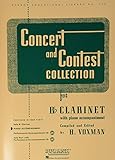All Categories




Musorgsky: His Life and Works (Master Musicians Series)
Share Tweet








About Musorgsky: His Life And Works
Product Description Modest Musorgsky was one of the towering figures of nineteenth-century Russian music. Now, in this new volume in the Master Musicians series, David Brown gives us the first life-and-works study of Musorgsky to appear in English for over a half century. Indeed, this is the largest such study ofMusorgsky to have appeared outside Russia. Brown shows how Musorgsky, though essentially an amateur with no systematic training in composition, emerged in his first opera, Boris Godunov, as a supreme musical dramatist. Indeed, in this opera, and in certain of his piano pieces in Pictures at an Exhibition, Musorgsky produced some ofthe most startlingly novel music of the whole nineteenth century. He was also one of the most original of all song composers, with a prodigious gift for uncovering the emotional content of a text. As Brown illuminates Musorgsky's work, he also paints a detailed portrait of the composer's life. Hedescribes how, unlike the systematic and disciplined Tchaikovsky, Musorgsky was a fitful composer. When the inspiration was upon him, he could apply himself with superhuman intensity, as he did when composing the initial version of Boris Godunov. Sadly, Musorgsky deteriorated in his final years,suffering periods of inner turmoil, when his alcoholism would be out of control. Finally, unemployed and all but destitute, he died at age forty-two. His failure to complete his two remaining operas, Khovanshchina and Sorochintsy Fair, Brown concludes, is one of music's greatest tragedies. Written by one of the leading authorities on nineteenth-century Russian composers, Musorgsky is the finest available biography of this giant of Russian music. From Publishers Weekly Brown, author of the standard biography of Tchaikovsky and professor emeritus of musicology at the University of Southampton, brings his many years of Russian music writing to this biography of Russian composer Musorgsky. Most famous for his opera Boris Godunov and his orchestral piece St. John's Night on the Bare Mountain (made popular as the climax of Disney's Fantasia), Musorgsky was a member of a group of nationalist composers often called "the Mighty Handful," whose members included Tchaikovsky. Brown devotes major chapters of his book to the composition and music of Musorgsky's operas, such as the various versions of Boris as well as the unfinished Khovanshchina and Sorochintsky Fair, which were worked on by other composers after his death. Brown's deep interest lies in the music rather than the man, for he pays little interest to Musorgsky's medical problems, especially the "dementia" and depressions of his early years, which Brown considers to be the results of the composer's alcoholism, a disease that killed him at the age of 42. And while Brown does not have the rhetorical panache of Richard Taruskin (Musorgsky), he refrains from musicological jargon or overly technical musical analyses, bringing together a solid biography of the composer. 3 line illustrations and 18 halftones not seen by PW.Copyright 2002 Reed Business Information, Inc. From Library Journal The latest addition to Oxford's "Master Musicians" series, this is actually an update of a 1946 volume on Mussorgsky from Oxford. Musicologist Brown (Mikhail Glinka; Tchaikovsky) clearly knows late 19th-century Russian music and society and accurately portrays his subject as an amateur with no conservatory training in composition who nonetheless became one of the most revered of the group of Russian nationalist composers known as "The Five." His early death at age 42, brought on by alcohol poisoning, was a tragedy of immeasurable proportions, as he left incomplete two operas, Khovanshchina and Sorochintsy Fair. The book is well organized: the author seamlessly weaves perceptive but not overly arcane musical analysis with rich biographical detail. Three chapters are devoted to a detailed discussion of Mussorgsky's operatic masterpiece, Boris Godunov, but seve




















